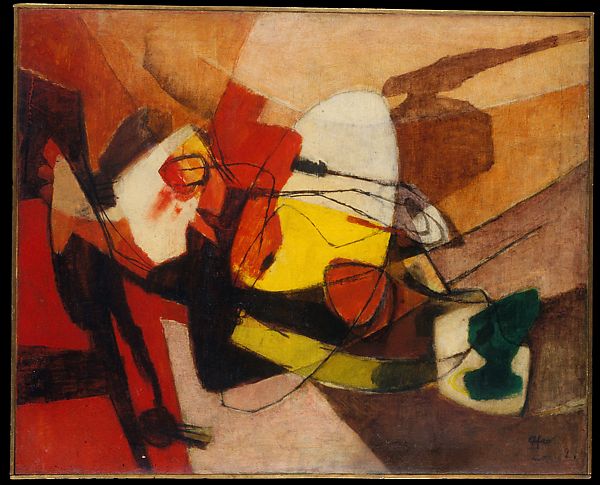Requiem From the Pothole, Within Which I Stand, Precariously Balanced
An old woman drags behind her
a dilapidated mailbox, its half-broken door
rattling on the brick of the pavement.
For five decades, she has
refused to shut her door,
has set aside a plate of food for a son
who is dead. Dead and gone. The plan
to build a monument for him was discussed
meticulously, then aborted – like many
other things we planned to chisel. Besides,
everyone knew him by his alias. Which
only happens to be an incomplete nomenclature
when contriving a memorial. I remember
her as a line in a song, an epigraph
in a poem whose end-rhymes
you kept forgetting. Although, I
remember you joining the chorus.
A line in a song where her eyes
are always hibiscus-red: with tears.
An antique mother who keeps carving
pearl-coffins from her own tears. Outside
of the barbed wires of the poems,
her eyes were hollow: you could have
poured buckets and buckets of water,
but nothing would have overflowed. No
ripples, nothing. Her hair shot up
towards the sky, a dry oleander tree
whose branches were bereft of blossoms. A
colony of vultures made their homes
in those shriveled boughs – dry, dessicated,
drought-heavy. In order to touch her bones,
rattling like an abandoned chimney, I
had to unstring your olivewood fiddle. Alone,
with empty hands, bruise-rivered
like an overflowing estuary. You stood
apart, head inside your hands, staring
down. Dejected, because you failed to find
the hammer inside the toolbox.
The Last Surviving Diorama From Twentieth Century
A tongue thus born – the prick
of a rusted needle, the serration
offered by a mountain-path, the chipped
edges of a dismembered constellation,
the bruised bones of a north star
that has lost its way. A star-chrome voice,
the ash that is left after the last fortification
has been gunned down : a tongue lit
by a flameable constellation. A city of girls
looking for poems on their skins;
you think, in their metaphors, your blood
will find a river to flow. This effort
to illustrate your voice with the broken
edges of the brick is like a leaf
looking for a tree. A quest pre-ordained
to fail: I am rowing a canoe down
the roads of a flooded city. I cannot save
anyone from drowning, but I am putting
you together bit by bit: an alphabet
at a time. You will set my assemblage on fire.
A Landscape in Cobweb
Amongst the many terrors of return,
is the vision of a precipice
turned inside out –
the imagined frottage: an
evening of smashing open
the flower-pots
of this city’s highrise balconies.
Yet, this promenade
remains
a hesitant foray
into the unwritten ballad –
of how entire wheatfields
rush into wallflower orchids,
remain lost, and reincarnate –
as memento magnets.
A row of seven balsam-saplings
on the balcony, the pots color-coded
to resemble a rainbow: a vague
effort to brush into existence
a coffee-table reality: an as-yet
untouched picturesque.
Iron-gates, walls veiled
with glass-shards; high as a forest-ranger’s
elephant. Barbed-wire driveways:
this is where philanthropists
are sculpted out of pill-popping mansion-mistresses.
A smack, a deluge, a snuff-out– the desert
a crow carries into the porch on its beak.
A scratch, a squeal: a plateau swimming
underneath her unslept ivory-bed. A rasp,
a scrape, a squeak: the chirr of a porcelain
vase perforating. This is the sound
of her carving poets out of makeshift mountains.
A massacre has just been made beautiful
in brush-strokes, and I am watching. Watching
and counting. Counting: how many seconds
does it take to hold someone
jumping from the rooftop. Or not.
In this return, I bring home nothing
but memories of evasion. The kind of barrenness
that inevitably follows an apology — I admit
I misread the wavering undulations of your chest
as pretension.
 Afro, ‘Untitled’, Oil on Canvas, 102.9 x 127 cm, 1952-53 | Image courtesy The Metropolitan Museum of Art
Afro, ‘Untitled’, Oil on Canvas, 102.9 x 127 cm, 1952-53 | Image courtesy The Metropolitan Museum of Art